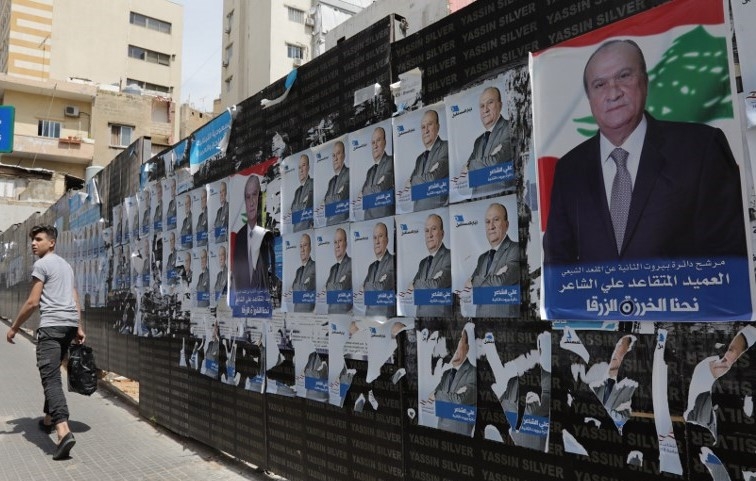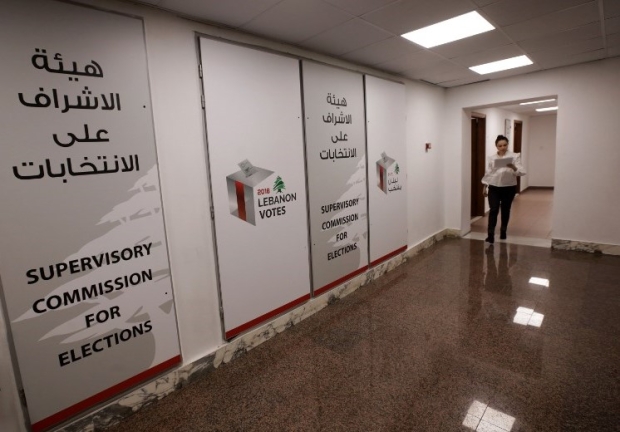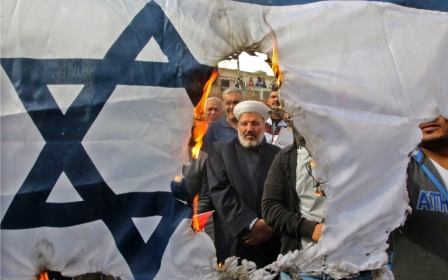Lebanon's elections: More empty promises, same old corrupt system

After almost a decade of multiple postponements stalling the national political process and depriving citizens of their right to vote, Lebanese parliamentary elections will be held next month under a new legal framework.
Passed in June 2017, the new election law replaces the majoritarian system with multi-member proportional representation, dividing Lebanon among 15 districts whereby voters can cast their votes for both a list competing in their district and a candidate from the list in their subdistrict.
Lebanon's stability
A list of electoral law reforms including out-of-country voting, pre-printed ballots to reduce potential vote-buying, and proportional representation - theoretically upping independents' chance of success - are touted by political elites as reformist steps forward as they manoeuvre to maintain Lebanon's stability amid years of unprecedented regional turbulence.
Through further promises to fight corruption, unemployment and to finally deliver on basic services, elites are signalling to national and international observers that they are turning a new page. But they're not.
Even the new electoral law is, in essence, a law created for and by the traditional political elite
Reports of vote buying, improper use of ministerial posts for electoral purposes, campaign finance violations and bribes mount. The Lebanese Electoral Supervisory Committee issued a statement on 19 April condemning the intervention of senior public sector officials during campaigns.
The body, however, lacks impartiality and independence and the power to enforce penalties for violations directly. Even the new electoral law is, in essence, a law created for and by the traditional political elite.
Plans unveiled at recent international donor conferences are unlikely to come to fruition without genuine structural reforms. And elites aren't interested. Even with the erosion of March 8 and March 14 political blocs and shifting political alliances, traditional elites remain in agreement - maintain the system that keeps them in power and continue benefiting from its spoils.
Real concessions, such as extensive anti-corruption reforms, are avoided, as it would only chip away at the system and their hold on power.
The name of the game
Safeguarding the status quo while paying lip service to voters' demands is, therefore, the name of the game. Instead of developing political platforms to address citizens' concerns, elites are filling their hollow track records with empty promises to gain votes.
Nowhere is this more apparent than in proposals for a general amnesty law. The reported draft law has yet to be made public (if it ever will) but could amnesty tens of thousands of wanted or sentenced individuals not uncoincidentally from electorally contested districts in Sunni-majority areas of the north and south, and Shia-majority areas of the Baalbek-Hermel East.
For their part, Hezbollah's margin of victory was narrowed by fierce competition in some areas, including from regional tribal leaders in the Biqaa and Hermel. The economic crisis has further forced it to cut back its social services to the Shia community there, potentially affecting its popular appeal.
After years of instability, voters are now increasingly focusing on bread and butter issues and elites' failure to deliver
Now that the amnesty has likely been put on the back burner until after elections, some citizens are threatening to boycott the election. Supporters claim their communities deserve justice and see the amnesty as the only way to get it in Lebanon's broken criminal justice system.
Fed up with elites "playing on their nerves" and using a "fake amnesty" to "laugh at them", residents still express the hope that, just for once, elites can prove them wrong. To them, the provision of justice is just one more service the government fails to provide. Ongoing delays in electricity, corruption, and waste disposal reforms fail to give needed credibility to Lebanon’s political rulers.
The core issues
After years of instability, voters are now increasingly focusing on bread-and-butter issues and elites' failure to deliver. Independent lists and candidates are hoping to capitalise on this and breathe new life into the system with the development of political platforms tackling economic problems and emphasising core issues such as secularisation of the state, rule of law, human rights, and equal provision of basic services in hopes of reforming the system from within.
Shifting traditional political alliances have led to unexpected shake-ups with some parties competing against each other in one district and together in another. In this new electoral environment, candidates are negotiating district by district, putting more of an emphasis on lists than party loyalties, resulting in a campaign driven by electoral gains rather than campaign alliances. How this plays out in the post-election environment remains to be seen.
Still, election experts remain pessimistic. One Lebanese analyst warned that even if independent candidates get elected, the weight of the confessional system will prove too much to bear and they will be forced to align with traditional parties or be pushed out.
Elites are keen on saving the system and want to squash any counternarratives that may destabilise their hold on power. And the international community isn’t protesting this effort to prioritise stability above all else.
Clientelism and sectarianism
Despite having little to concede to voters, communal and sectarian ties are a means for self-assertion, security and self-preservation, and some voters say they have no other choice to support "their leaders". They see the fate of their leaders directly tied to their access to services as a community. Spoils of the system are often viewed as a zero-sum game.
"I'm not happy with the situation but I can't not vote, even though I'm upset there hasn't been an amnesty yet. We (Hezbollah supporters) are being attacked from all angles by candidates in other districts. We need to stand up for ourselves and vote," one woman from Baalbek said.
One Sunni activist from Saida promised to support Hariri even though he thinks the amnesty and an improved criminal justice system won't materialise after the elections. "He's lied to us before and will lie to us again. But Hariri and the Future Movement faced losses in 2016 municipal elections and we need to help him now…to secure our future," he said.
Indeed, as one Lebanese election expert said: "Elections have never been about addressing citizens' needs and developing programmes, it's about clientelism and sectarianism."
- Haley Bobseine is an independent writer, researcher, and analyst with more than 8 years field experience in the Middle East. Haley holds a BA/MA in Modern Middle East History from Brown University. She speaks Arabic. Twitter: @haleybobseine
The views expressed in this article belong to the author and do not necessarily reflect the editorial policy of Middle East Eye
Photo: A picture taken on 3 April 2018 shows campaign posters, for the upcoming Lebanese parliamentary election, hanging in the Tariq Jedideh district of Beirut (AFP)
This article is available in French on Middle East Eye French edition.
New MEE newsletter: Jerusalem Dispatch
Sign up to get the latest insights and analysis on Israel-Palestine, alongside Turkey Unpacked and other MEE newsletters
Middle East Eye delivers independent and unrivalled coverage and analysis of the Middle East, North Africa and beyond. To learn more about republishing this content and the associated fees, please fill out this form. More about MEE can be found here.






